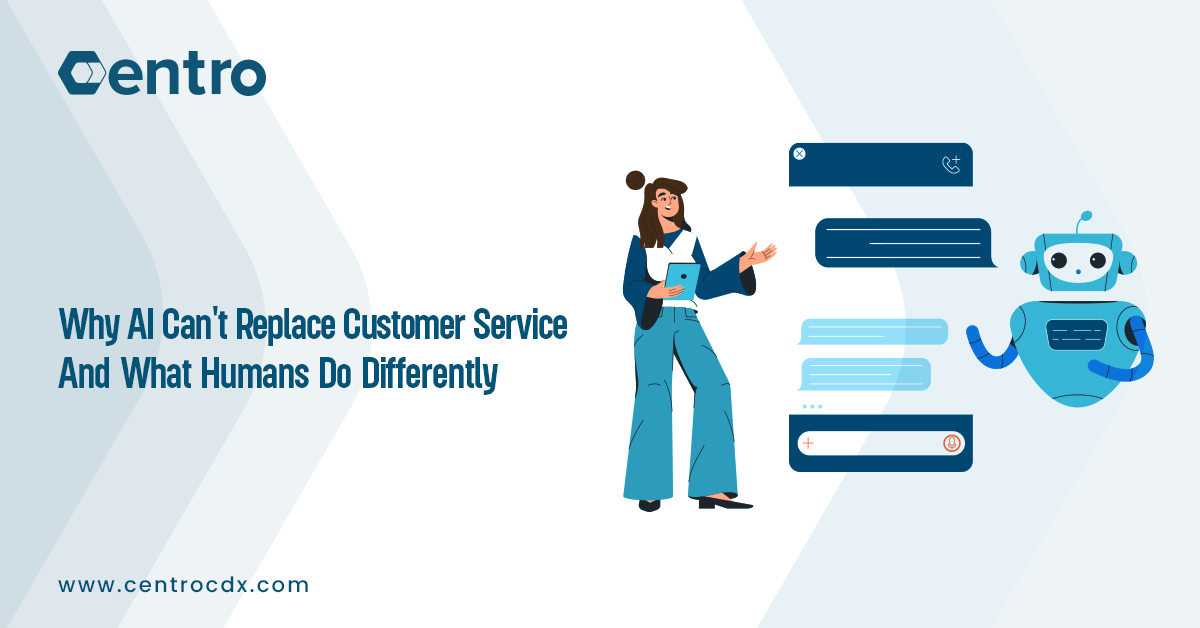

For as long as we’ve known, customer service was always self-explanatory. When someone hears that term, they immediately picture the same image we all have: an agent answering calls with a headpiece on their head and a smile on their face.
But now, customer support has taken an entirely different form. It’s not difficult to notice that many vendors have embraced AI technology and moved their customer service models away from live help. And it’s not at all difficult to notice how this technological evolution has changed everything we think we know about customers’ mindsets and what they deem as “good customer service.”
However, while AI-powered customer service tools like chatbots are making positive noises all around, it’s difficult to imagine them replacing human interactions in the long run.
AI VS Humans: What constitutes good customer service?
It comes as no surprise that many companies are questioning which service is better for their customers – human or AI-powered chatbot based.
So the question remains: Will AI replace human customer service? Do chatbots really offer client care so good that people will be dispensable?
But here’s the real question we should be asking: Is AI truly better than people at customer service or have human agents set the bar so high?
To answer this, we need to examine the main elements of great customer service and how both AI and humans factor in:
1. Timeliness
Nobody enjoys waiting in limbo. A prompt response, regardless of the channel, indicates respect for the customer’s time and urgency.
Both AI and humans can be timely, but the nature of their timeliness differs. AI excels at instant responses, while humans might take a bit longer to gather exactly the kind of information customers need and personalize their responses accordingly.
2. Empathy
When it comes to providing an unforgettable experience, empathy goes a long way.
Often, customers feel like they aren’t heard, especially if they don’t get the result they’re looking for. And because people are inherently emotional creatures, more than 40% of customers prefer live chat to any other means to address their concerns.
This isn’t a way to say that recent advancements in technology haven’t contributed at all. Natural language processing, for example, and sentiment analysis have allowed AI to mimic empathetic communication to some extent. But when you genuinely put yourself in the customer’s shoes and are empathetic to their needs, it will calm down the most furious customers and make them feel, not heard, but listened to.
3. Active listening
Listening is about more than just parroting back words. If that were all it took, we could replace customer service agents with AI bots programmed to pass a simple echo test. But human appeal requires more.
We need active listeners, those who can listen to and understand others, interpret what was both said and what was left unsaid, and then reflect that back with statements like, “So, it sounds like you’re feeling…”.
Not to mention that real active listening requires seeing and responding to both verbal and nonverbal cues. So, while AI tools might be close enough to sentience that they can express emotion, we’re not quite there yet.
4. Expert knowledge
Expert systems (Or knowledge-based systems) are one of the most applied areas in AI research. They do wondrous and impressive things like pulling up relevant facts and figures in a blink, churning out a thousand reports, and even generating creative content. But their knowledge is static, confined to the data they’ve been trained on. They can’t adapt to unexpected scenarios.
However, their functionalities are limited. While expert systems do have lower error rates, they can never find what they have not been trained to look for. If you get a customer with a unique issue, a rare technical glitch, or even an emotional outburst, the system stumbles.
This is considered an “out-of-distribution” problem, where AI struggles with handling data outside its pre-programmed knowledge.
The AI + human advantage
When it comes to customer service, there’s no doubt both human and AI customer support have a lot they can bring to the table, especially when used together.
Yes, AI excels at speed and scale. It handles routine tasks flawlessly, answers questions instantly, and even personalizes basic interactions. But as much as customers would like that, they will never stop wanting someone who understands them, and that can’t always come from AI.
Customer service agents provide a critical human element that AI has yet to learn: consciousness. But when you set your mind on providing the best of both worlds: speed and human empathy, AI can create more satisfied customers and more engaged employees.
If you want to partner with a provider that can cover all your customer support needs using the right balance of human customer service and technology, check out https://centrocdx.com/


